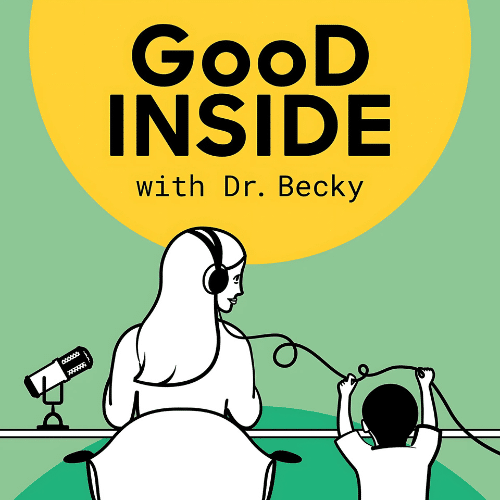Are you a new parent wondering why your newborn is staying awake for hours? It might seem like your little one has decided to not sleep forever, turning peaceful nights into long, exhausting challenges.
Watching your newborn fight sleep can make you feel super frustrated, confused, and totally worn out.
The good news is that you’re not alone. There are real reasons why babies sometimes stay awake for hours, and every parent goes through this. There are helpful ways to understand and solve sleep problems.
This blog is packed with simple explanations and easy tricks to help your baby (and you) get the rest you need.
What’s Normal in Newborn’s Sleep Patterns?
Newborn babies need a lot of sleep—usually between 16 and 18 hours each day, which is about two-thirds of their day spent sleeping.
But here’s the tricky part for parents: this sleep doesn’t happen all at once. Newborns don’t know about “night” and “day” yet. Their tiny tummies can only hold a small amount of milk, so they need to eat every 2-3 hours around the clock.
For the first few weeks of life, most newborns:
- Sleep in short chunks of 1-3 hours at a time
- Wake up to eat, then fall back asleep
- Don’t have any set pattern to when they’re awake or asleep
- Mix up days and nights (they might be more awake at 2 AM than at noon!)
How to Address Your Newborn Not Sleeping
Your baby will show you when they’re tired and ready for sleep. They might rub their eyes with their tiny fists or pull at their ears. Yawning is another clear sign that sleep time is near.
Many babies turn their faces away from what’s going on around them when they need rest. Your little one might also start to fuss more than usual, make quiet noises, or cry for no clear reason.
Their body movements often slow down, and they might stare blankly into space. Some babies get very still while others become more active when they’re tired.
Their eyes can look glassy or red around the edges. If you notice your baby is harder to make happy or gets upset more easily than usual, they might just need some sleep.
These signs usually show up about 10-15 minutes before your baby gets too tired, so watching for them can help you know when it’s time for a nap.
Primary Causes of Your Newborn Staying Awake
It can be frustrating and worrying when your newborn stays awake for hours, especially when you’re hoping for some rest. However, prolonged wakefulness is a common issue and is often caused by several factors.
Below are some of the most frequent causes of this behavior:
1. Hunger
Newborns have small stomachs and need to be fed frequently, often every 2-3 hours. If your baby is staying awake for hours, it may be because it is hungry and hasn’t had enough to eat.
Babies will sometimes stay alert and cry if they’re not satisfied after a feeding or if they’re going through a growth spurt and need extra nourishment.
2. Discomfort
Your newborn may also stay awake if they are feeling uncomfortable. Common sources of discomfort include:
- Diaper issues: Wet or soiled diapers can cause irritation and disrupt sleep.
- Gas: Babies often experience discomfort from gas, making them fussy and unable to settle.
- Teething: Although teething generally starts later, some newborns can begin to show signs of it early, causing pain that keeps them awake.
3. Overstimulation
Newborns can easily become overstimulated from too much activity, noise, or bright lights. If your baby is exposed to too many stimuli during the day, they may struggle to wind down, leading to longer periods of wakefulness.
A noisy environment, bright lights, or an overly active routine can interfere with their ability to relax and fall asleep.
4. Sleep Cycle Disruptions
Newborns are still developing their sleep cycles, which typically involve shorter periods of deep sleep. As a result, they may experience frequent awakenings or remain awake for longer periods.
These disruptions are a normal part of their development and often resolve as the baby matures and their sleep patterns become more predictable.
5. Health Issues
In some cases, prolonged wakefulness can be caused by underlying health issues. If your baby has a medical condition that causes discomfort or pain, it may affect their sleep.
Conditions such as reflux, colic, or ear infections can cause prolonged wakefulness, and in these cases, it’s important to consult a pediatrician for guidance and treatment.
Ways to Help Your Newborn Sleep Better
Now that we know why sleep might be challenging for your newborn, here are some strategies to help improve their sleep routine:
1. Establish a sleep routine
Creating a bedtime routine can help signal to your baby that it’s time to sleep. Here are a few steps to consider:
- Set a consistent bedtime: Try to put your baby to bed at the same time every night, even if it’s a bit early.
- Create calming rituals: A warm bath, gentle massage, or a quiet lullaby can help signal that it’s time to wind down.
- Maintain a calm environment: Avoid loud noises or bright lights that might disrupt their ability to relax.
2. Check for hunger or discomfort
Before putting your baby down to sleep, make sure they are comfortable. Here’s what to check for:
- Feed before bedtime: Make sure your baby has had a full feeding before trying to put them down to sleep.
- Check for diaper issues: Ensure that your baby’s diaper is clean and dry to avoid discomfort.
- Comfort them: If your baby is gassy or showing signs of discomfort, consider gently rocking or burping them to help release any trapped air.
3. Create a calming environment
The environment your baby sleeps in plays a huge role in how well they sleep. A calming environment can help your baby fall asleep more easily:
- Dim the lights: Bright lighting can be stimulating and interfere with sleep. Dim or turn off the lights to create a soothing atmosphere.
- Use white noise or soft music
- Make the room cozy: Keep the room at a comfortable temperature and use soft bedding to ensure your baby is cozy.
4. Optimize nap times
Newborns can only stay awake for short periods before becoming overtired, which can make it harder for them to fall asleep.
It’s essential to keep an eye on their wake windows to avoid overstimulation:
- Use a timer: Set a reminder to track your baby’s wake windows and avoid overstimulation.
- Track sleep patterns: Keep a log of their sleep to identify natural rhythms.
- Be proactive with naps: Start nap routines at the first signs of tiredness (e.g., rubbing eyes).
- Set a consistent schedule: Stick to regular nap times to help regulate your baby’s sleep.
When to Consult a Paediatrician
If your baby’s sleep issues persist or if you’re concerned about their well-being, it’s important to consult a pediatrician. Excessive crying or discomfort, despite feeding and soothing, may indicate an underlying issue.
If sleep disturbances continue beyond the early newborn months, it could point to a medical concern. Additionally, difficulty feeding or poor weight gain can affect sleep and may need professional attention.
Persistent signs of illness, such as cold, fever, or other symptoms, should be evaluated by a pediatrician.
Finally, if your baby isn’t meeting expected developmental milestones, it could impact their sleep and requires a doctor’s assessment. Consulting a pediatrician ensures your baby’s health and comfort are on track.
Conclusion
Dealing with a newborn’s sleep can feel like solving a tricky puzzle. Every baby is different, and sometimes their sleep might seem totally crazy.
But don’t worry! By understanding why your newborn is staying awake for hours and using the right strategies, you can help them (and yourself) get better rest.
The most important things to remember are being patient and staying consistent.
Try following wake windows, watching for sleepy signs, and creating a calm bedtime routine. Some nights will be tough, but that’s totally normal.
With time and practice, you’ll become a sleep expert for your little one. Remember, every baby is learning, and so are you.
Keep trying, stay positive, and know that better sleep is definitely possible!
Frequently Asked Questions
What is the 40-Day Rule for Newborns?
The 40-day rule refers to a traditional guideline where newborns are kept mostly indoors and avoid exposure to germs or external environments for the first 40 days of life.
Can I Let My 1-Week-Old Sleep Through the Night?
At one week old, babies still need to be fed every few hours, even during the night. It’s not recommended to let a one-week-old sleep through the night, as they need regular nourishment for healthy growth.
When to Stop Swaddling?
You should stop swaddling your baby when they start showing signs of rolling over, usually around 2-4 months. This is important for safety, as rolling while swaddled can increase the risk of suffocation.
When to Stop Burping Baby?
Most babies outgrow the need for frequent burping between 4-6 months when they are able to sit up and their digestive system matures. However, some babies may still need help burping beyond this age.





































































